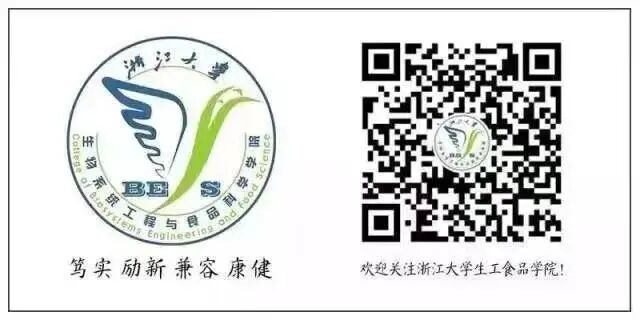Editor’s Note: Generations of agricultural and food professionals have paved the way and made continuous efforts to promote the development of the institute. On the occasion of studying and implementing the spirit of the 20th National Congress of the Communist Party of China, faculty and students of the institute have invited retired professors to narrate the history of the institute through interviews, sharing stories from the past. We will compile these narratives into character interviews and publish them periodically on the institute’s WeChat public account, allowing faculty, students, and alumni to reflect on the path of reform and development of the institute, appreciate its cultural heritage, and inherit and promote its fine traditions. This issue features the story of Professor Li Weiguang.

1
Introduction
Li Weiguang, born on November 18, 1950, in Ningbo, Zhejiang, studied at the Tractor Design and Manufacturing Department of Zhejiang Agricultural University and remained at the university as a teacher after graduation. In his teaching and research work, he compiled textbooks and taught courses such as “Non-electric Measurement Technology,” “Computer Applications in Agricultural Engineering,” “Computer Programming,” “Computer Graphics,” and “Computer Networking Technology and Website Design” according to the needs of the discipline’s development. He has received multiple honors, including the First Prize for Outstanding Teaching Achievements and Outstanding Teacher. His research achievements in optimizing the design of board cutting have won provincial science and technology progress awards and have been included in the Ministry of Education’s Torch Program promotion projects.
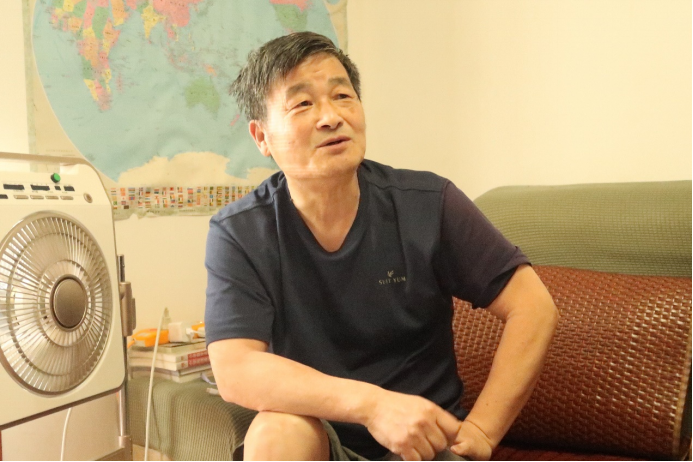

2
Originating from Zhejiang University, Devoting to Zhejiang University
At the beginning of the interview, we asked Professor Li to share some interesting stories from the school’s past, and he recalled some amusing anecdotes from the Huajiachi campus.
After the spring tide and heavy rain, the Huajiachi pond overflowed, and the campus often had standing water. In the grass by the office door in the back yard of the East Building, there were many palm-sized crucian carp swimming around, and we worried whether these fish could swim back to Huajiachi when the water receded. A few brief sentences took us back to the past of Huajiachi. Although the living conditions in the dormitories were simple at that time, the school spirit and academic atmosphere were excellent, and students were diligent in their studies. In the hot summer, there were no fans or air conditioning in the dormitories, and at night, students would move stools to the square and study under the streetlights. The school’s logistics department actively provided electricity for lighting.
In those days, university classrooms did not have desks; students sat on chairs, and the right armrest of the chair was wide enough to hold textbooks and take notes.
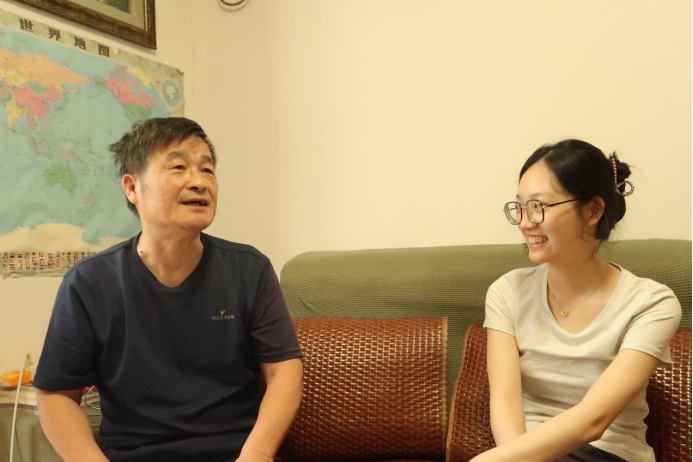
“The early research work of the institute mainly revolved around agricultural machinery and tractor-related research projects. Some teachers went to Deqing to work on rice transplanters, some stayed at the Ningbo Tractor Factory to develop hydraulic tractors, and some assisted the tractor factory in conducting durability tests on tractors in tidal flats. The fieldwork was long and arduous, but once the tests were completed, the tractor could be returned to the school. Some teachers worked on soil tillage machines to solve the problems of tidal flat operations and transportation. Once, our test prototype was transported to an island for testing on a landing craft from the Shipu Navy, but unfortunately, the torque sensor mounted on the drive wheel was damaged by seawater, and we had to clean and reattach the strain gauge overnight, strengthening the waterproof measures, which delayed us for two days, and we ran out of food we brought to the island.”
When talking about his years studying at Zhejiang University, Professor Li mentioned that his classmates in the tractor design and manufacturing major creatively made their own notebooks by cutting white newspaper into sixteen pages and binding them, adding a cover with their favorite tractor designs. When writing, they would place a sheet of graph paper behind the thin paper to keep their writing neat and beautiful. A mechanics analysis problem required several pages of paper for drawing force diagrams and calculations. Each dormitory subscribed to different professional magazines, circulating and discussing them, creating a good learning atmosphere. In fact, university only provides an opportunity and platform for learning; those who are good at learning and have strong learning abilities can acquire more knowledge and skills. Academic discussions and debates among classmates should be a great way to enhance learning and communication.

3
Dedicating to Research, Innovating Pragmatically
After graduation, Professor Li stayed at the university to teach, initially assisting relevant teachers in conducting experimental guidance for courses on tractor design and theory, as well as related research work, making sensors for tension, torque, fuel consumption, and stroke by himself. He recalled feeling honored to conduct research work under Professor Cui Shaorong. Under Professor Cui’s guidance, he modified a tractor into one of the earliest electric measurement vehicles capable of conducting mechanical tests in paddy fields in China, collecting, organizing, and analyzing the loads of tractors under various working conditions, extracting effective loads, and simulating indoor loading for tractors to accelerate the completion of durability and reliability tests. At that time, due to limited research funding, we purchased two dismantled car gearboxes and several drive shafts at a low price from a junkyard in the southern city, and assembled them into a closed transmission system test bench in the laboratory. This closed transmission system test bench, which used computer control to simulate effective loads and dynamically load through levers, cleverly recycled most of the test power. This design method has been widely applied in durability tests for gear transmission system manufacturers.
He said that in the early research work at the institute, automatic detection and control technology was needed. As early as the late 1970s, Professor Cui had given him several introductory books on computers, hoping he could learn more about computers, which would be useful in the future. Later, he participated in the first batch of single-board computer training classes in Zhejiang Province with Professor Cheng Wenxiang, starting the practical application of single-board computers. This led to early program design under the CP/M operating system on microcomputers and the development of tractor load spectrum analysis software. Early computers were rare, and the country imported a batch of 176 sets of microcomputers. Our school received 21 sets, and I went to Beijing to inspect them. Computers at that time were very unreliable, and it took several days to assemble and test the components before accepting the 21 sets. Our institute received 10 sets, set up a computer room, and I personally installed and debugged them. They often broke down, and I figured out how to repair them, replacing integrated circuits. Many departments in the school preferred to ask me to repair their computers, and I became well-known for it. At that time, the institute undertook nearly half of the computer teaching tasks for the entire school. This trend of the times promoted a comprehensive shift towards computer teaching and research. We subscribed to publications such as “Computer World,” “China Computer News,” “Computer Application Technology,” and “Software News,” and published technical articles in these journals. I participated in national academic conferences on computer applications multiple times, and my papers won awards each time. For several years, “China Computer News” was sent to me by mail, which was very touching. I also helped the school’s academic affairs office develop student registration and grade management system software. I lamented that young people are in good health, often losing track of time while immersed in computer software development, programming until dawn in the computer room.
Software development is a time-consuming and labor-intensive task. Nowadays, software engineering involves teamwork, whereas in the past, it was a solitary endeavor, with each step from requirement analysis to program design being quite laborious. The software I developed includes: the student registration and grade management system software for Zhejiang Agricultural University (commissioned by the academic affairs office), the auto parts information query system website and insurance claim assessment system software design (commissioned by enterprises and included in Hangzhou’s scientific research projects), board cutting optimization design software development and user service website design (commissioned by enterprises, included in Hangzhou’s science and technology projects, won provincial science and technology progress awards, and included in the Ministry of Education’s Torch Program promotion), the Ministry of Education’s technology achievement trading network sub-network – Zhejiang University Technology Achievement Trading Network website design (commissioned by the school’s research institute), and the teaching process teacher-student contact network platform design (for teacher-student interaction, online assignment submission, grading, and tutoring). Of course, there were also the development and application of microcontrollers in several later research projects, as well as hardware circuit design and related software development in real-time detection and control systems, and designs for system anti-interference and self-recovery.
The Hangzhou municipal government once hired 25 technology advisors at Zhejiang University, and after retirement, Professor Li was appointed as a technology advisor in Hangzhou, going deep into enterprises to help solve practical problems, continuing to contribute to society through research topics.
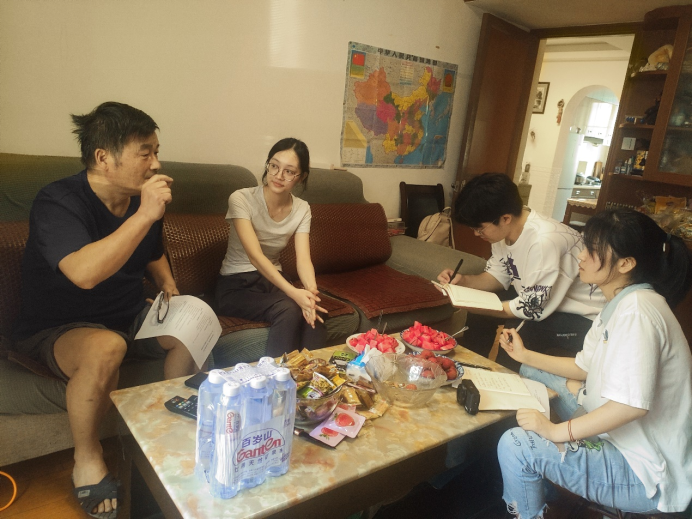

4
Rooted in Education, Upholding Original Intent
For many years, Professor Li has been deeply rooted in the education sector, holding a set of his own educational philosophy. He believes that as a university teacher, one must possess strong learning abilities. With the rapid development of various disciplines, the content of lectures and textbooks must be updated in a timely manner. If you do not engage deeply in research, your learning ability will not keep pace with that of graduate students; what can you teach your students?
As early as back then, he innovatively designed a network platform for teacher-student interaction in the teaching process, where the website contained the teaching outlines, course arrangements, tutoring materials, and reference materials for software used in courses offered to graduate, undergraduate, and vocational students. Students could log in online to download materials, submit assignments, browse the teacher’s corrections, ask questions, and receive tutoring, facilitating effective teaching interaction. This platform ran for many years and was well-received by students until it was closed after his retirement.
Professor Li emphasizes the importance of teaching methods, believing that teachers should teach students how to analyze problems and the thought processes for solving them. Students should learn to search for information, discern useful from useless, correct from incorrect, and cultivate their ability to analyze and solve problems. He guides students towards the correct research approach. He places great importance on cultivating students’ practical skills, emphasizing that both knowledge and skill training are essential for engaging in research work; knowledge can clarify direction, while skills can achieve goals.
Professor Li once went to Shihezi University in Xinjiang during the summer vacation to teach a graduate class for the College of Science and Engineering. During the month-long course, many teachers from other colleges spontaneously came to attend the lectures, indicating that the course content was indeed useful. He opened up new ideas and methods for teaching and research, receiving praise and hospitality from local university leaders, who said it ignited everyone’s enthusiasm for learning.
After retirement, Professor Li occasionally pays attention to programs on CCTV. He expressed that many of the rural inventions and creations reported by CCTV are made by farmers themselves, yet many urgent agricultural machinery and technical issues in rural areas receive little attention. He hopes that our students can go to rural areas to help solve some practical problems in agricultural production, contributing to the development of agriculture and rural areas in our country. This is a mission.
He mentioned the various temptations faced by society today and hopes that everyone can always uphold their principles of character. Adhere to the correct values, outlook on life, and worldview. Achieve joy in success through hard work, experience happiness in helping others, and gain glory in serving the country and its people.
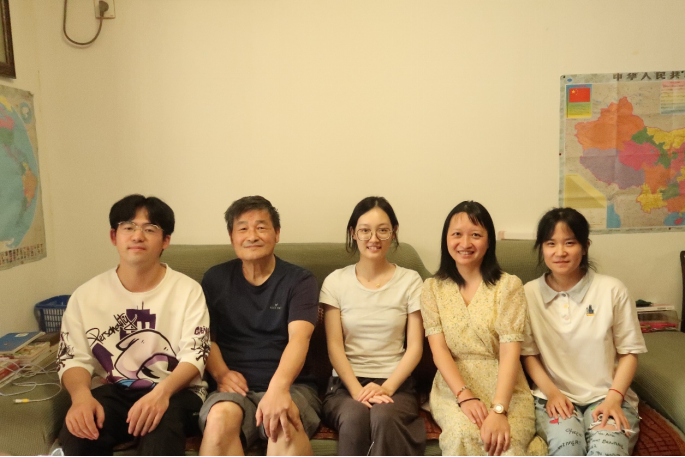

5
Conclusion
Professor Li Weiguang has dedicated his life to education, devoted himself to research, remained indifferent to fame and fortune, and lived a frugal and simple life. His commitment to teaching and nurturing students at Zhejiang University is not only his life pursuit but also a spirit of dedication and perseverance. He takes education as his responsibility, cultivating students’ innovative learning abilities and practical skills; he bravely climbs to the peaks of research, undeterred by difficulties, and practices innovation. His story inspires us, showing us the power of struggle and the value of persistence. No matter where we are, as long as we remain true to our original intentions, root ourselves in our duties, and practice diligently, we can achieve excellence. Let us carry a sense of mission, keep our original intentions alive, and contribute our strength to scientific research and national construction!
Source: Youth League Committee (Student Work Office)
Interview organized by: Mai Jiayu, Gan Ziyu, Xi Te
Guiding Teacher: Lu Huang
Reviewed by: Yan Kaiya, Chen Bo
